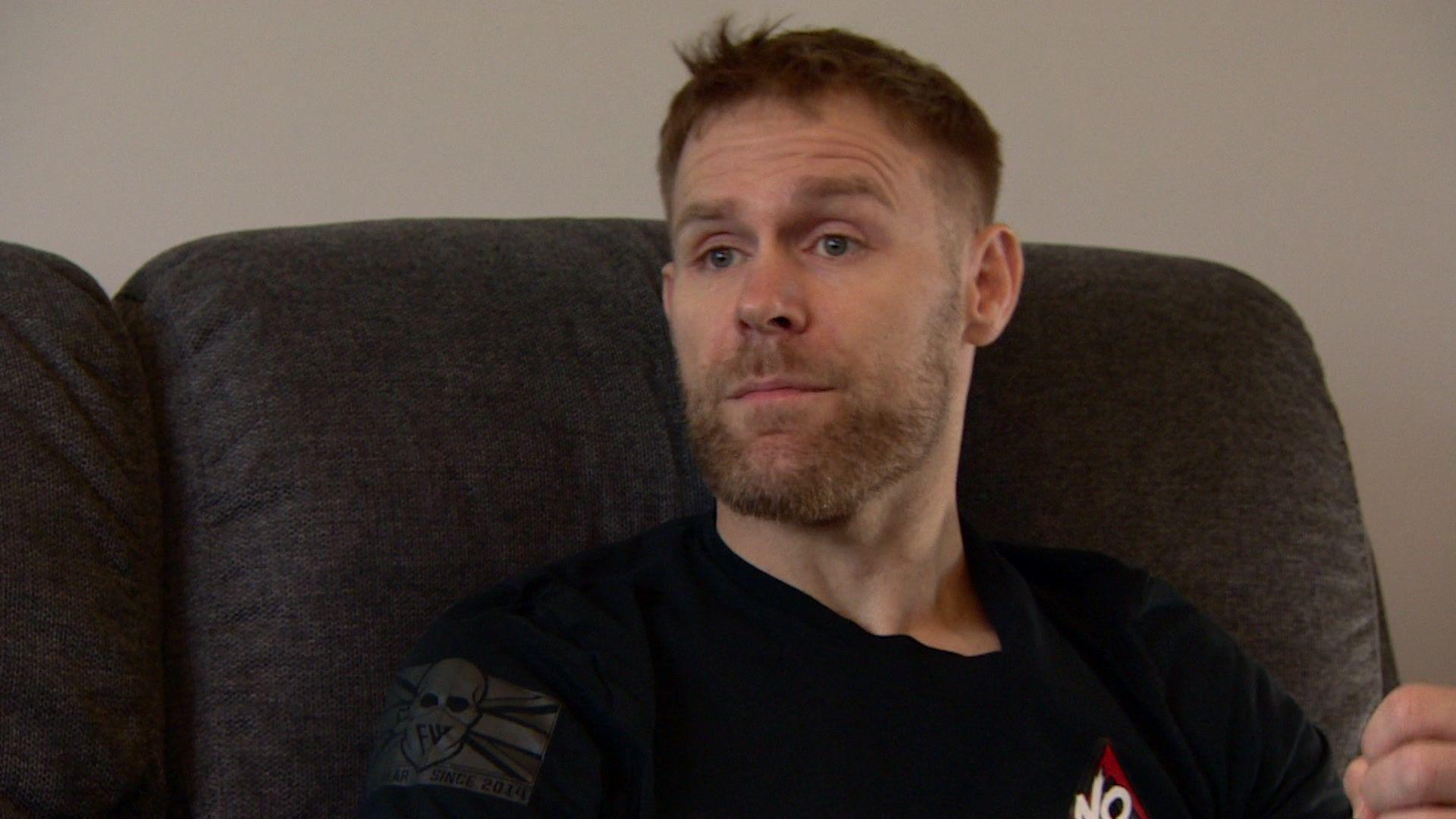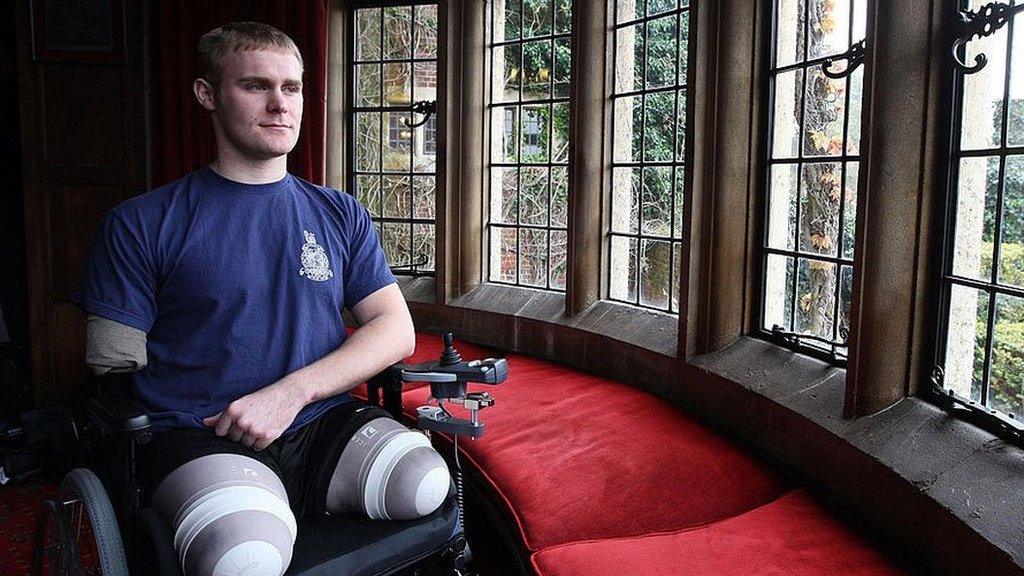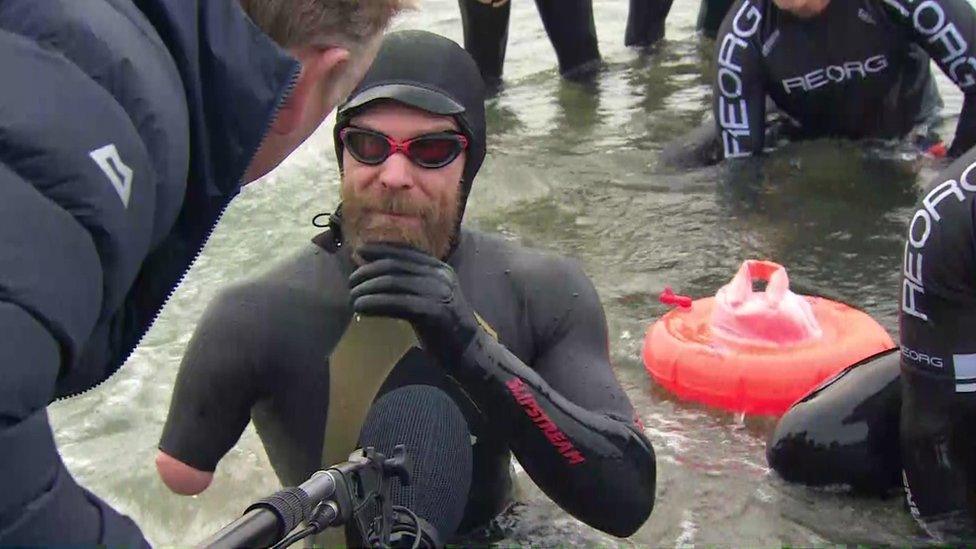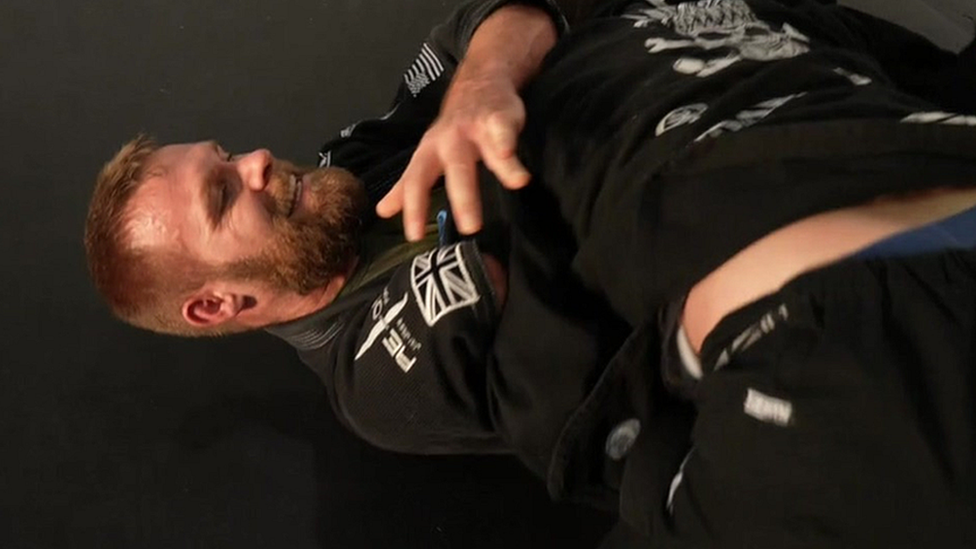'Paralympians face extreme costs for prosthetics'

Mark Ormrod was the UK's first triple amputee to survive in the Afghanistan conflict and competed in the Invictus Games
- Published
Mark Ormrod MBE has said Paralympians face "extreme costs" for specialized prosthetics.
The former Royal Marine and the UK's first triple amputee to survive the Afghanistan conflict, said there needed to be increased support and awareness for disabled athletes.
Mr Ormrod, who is an Invictus Games champion and ambassador of the charity Blesma, said the prosthetic legs he uses for everyday use cost about £80,000 while specialised prosthetics could cost up to £120,000.
UK Sport said money was available to help disabled athletes with more than 1,000 receiving funding.
'Phenomonal opportunity'
Mr Ormrod said: "The specialist hand cycle I use that Blesma funded for me to go to the Invictus games was £10,000 without any specialist equipment on it.
"The arms I use can cost several thousand pounds. It isn't cheap," he said.
But Mr Ormrod said the Paralympics was a phenomenal opportunity for disabled athletes: "I think for anyone who has been in a situation like mine, or may have acquired their disability later in life, it feels like a huge part of you has been taken away.
"When you discover sport and start to compete, you feel like you get that part of your life back.
"It does more for you than I can really articulate but it is great for your recovery."
Medical scheme
Mr Ormrod was aged 17 when he joined the Royal Marines in 2001. His life changed on Christmas Eve 2007 when he stepped on an improvised explosive device (IED) while on patrol in Afghanistan. He said the explosion cost him both his legs and his right arm.
UK Sport said funding was available to help disabled athletes.
A spokesman said: "More than 1,000 Olympic and Paralympic athletes get Athlete Performance Awards thanks to National Lottery funding. These awards are designed to contribute to living and sporting costs.
"Those athletes also get access to private medical cover through the Athlete Medical Scheme at a cost of around £2,000 per athlete per year."
The UK Sport Institute (UKSI) said it supported more than 50 Olympic and Paralympic summer and winter sports.
Challenges
A spokesman said: "With prosthetics, in some instances, the sport might cover specific costs if an adaptation is required to meet the demands of that support."
"In addition, the UKSI has set up the ProsthetiCare project, which acts as a prosthetics support unit, giving practitioners one point of contact for the challenges amputee athletes might be experiencing."
The Paris 2024 Paralympics runs from 28 August to 8 September.
Follow BBC Devon on X (formerly Twitter), external, Facebook, external and Instagram, external. Send your story ideas to spotlight@bbc.co.uk, external.
- Published10 January 2024

- Published24 December 2022

- Published9 December 2021
